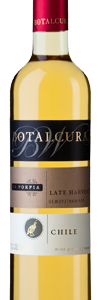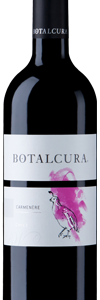Non-vintage (2009-2011) Perverso is a solera blend from 2009 to 2011 with ageing in barrel. The wine is a blend of Merlot, Cabernet Franc, Cabernet Sauvignon and Carignan. Winemaking was the result of Pilar Miranda & Álvaro Peña teamwork.
Solera is a process for aging liquids such as wine, beer, vinegar, and brandy, by fractional blending in such a way that the finished product is a mixture of ages, with the average age gradually increasing as the process continues over many years. The purpose of this labor-intensive process is the maintenance of a reliable style and quality of the beverage over time.[1] Solera means literally “on the ground” in Spanish, and it refers to the lower level of the set of barrels or other containers used in the process; the liquid (traditionally transferred from barrel to barrel, top to bottom, the oldest mixtures being in the barrel right “on the ground”), although the containers in today’s process are not necessarily stacked physically in the way that this implies, but merely carefully labeled. Products which are often solera aged include Sherry, Madeira, Lillet, Port wine, Marsala, Mavrodafni, Muscat, and Muscadelle wines; Balsamic, Commandaria, some Vins doux naturels and Sherry vinegars; Spanish brandy; beer; rums; and whiskies. Since the origin of this process is undoubtedly out of the Iberian Peninsula, most of the traditional terminology was in Spanish, Portuguese, or Catalan.
[1] Johnson, Hugh, Modern encyclopedia of wine, 1983 ed. New York:Mitchell Beasley (Simon and Schuster], p. 366.








